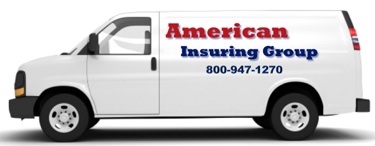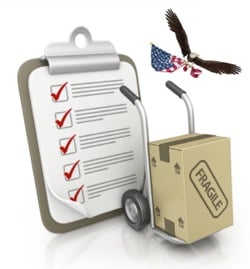As a landlord, obtaining the right level of public liability insurance coverage is important for your peace of mind and your bottom line, especially when you experience a large claim against your landlord insurance.
 5 Easy Steps to Better Public Liability Insurance Protection & Greater Savings:
5 Easy Steps to Better Public Liability Insurance Protection & Greater Savings:
#1. Place All Your Properties on One Landlord Insurance Policy (Public Liability Insurance Policy)
It is possible to save a considerable sum by combining all your properties under the same insurance provider. Rather than insuring each property separately, ensure them all under a single policy with a common renewal date. As a bonus, your bookkeeping will be simplified as well.
You can also phase your properties into a common Landlord Insurance policy over time by moving each to the combined commercial property insurance policy as the renewal date for each individual policy comes due. As you purchase new properties, be sure to add them to the combined policy for even greater savings. Depending on the insurer, you may be able to group more than one type of commercial property under the same policy, such as apartments vs. shops.
#2. Seek Professionals as Occupants
Consider gearing your marketing efforts to appeal to professional occupants with full time employment. Some insurers charge a higher premium for landlords of college students and others who statistically are more likely to cause property damage. By seeking occupants who are full-time professionals, you are appealing to a low-risk group with correspondingly lower landlord insurance costs.
#3. Insure Your Properties for the Right Amount
Property values and replacement costs are constantly in flux. Therefore, check the amount of coverage on each property periodically to be sure that it accurately reflects your true replacement cost. If you are over-insured then your premiums will be higher than they would be for the right amount of coverage. On the other hand, if you are under-insured then you risk incurring major and lasting financial problems if your property is destroyed and you lack sufficient insurance protection to rebuild it properly.
#4. Add a Larger Deductible to Your Landlord Insurance Policy
By adding a larger deductible to your policy, your premiums may drop significantly. This approach amounts to self-insuring for the deductible amount. Follow these steps to determine if paying a higher deductible is likely to be a better deal:
- Find out the annual premium cost to insure your properties with your current deductible amount vs. the cost with a higher deductible.
- Multiply the annual savings by 5 years (or whatever period you are likely to keep the property) to estimate your total savings on landlord insurance premiums over a 5-year period.
- Determine how many claims you would have to incur over 5 years before your savings on premiums would be consumed. If that number of claims looks unrealistically high, then it may make sense to increase your deductible and pocket the savings in premiums.
#5. Add a Security System to Your Commercial Properties
This is one of the most often-overlooked ways to save. Even a simple burglar alarm may save a meaningful amount on your insurance, possibly 10%. Compare the 5-year savings to the cost of the system. Chances are good that you may be money ahead by adding the system, and you and your tenants will have greater peace of mind as well. An independent insurance agent who represents multiple companies provides the best opportunity to save by comparing quotes from competing insurers.
Get Help
Do need help in finding the right landlord insurance for your commercial property? Contact us today for a free, no-obligation consultation on ways you can save more while enjoying better public liability insurance protection.




 For most small businesses, workers compensation insurance costs can eat up a fair percentage of their income. While this type of coverage is essential, especially for riskier professions, there are a few ways to minimize your workers comp insurance expenditures without sacrificing the level of coverage necessary for your enterprise.
For most small businesses, workers compensation insurance costs can eat up a fair percentage of their income. While this type of coverage is essential, especially for riskier professions, there are a few ways to minimize your workers comp insurance expenditures without sacrificing the level of coverage necessary for your enterprise.
 Not really. Anyone can apply to insure a commercial vehicle, (for example, a van), but they will find they are restricted when it comes to personal or private use of that vehicle. As long as the vehicle falls under commercial use, like delivering goods or providing a service (say, if the owner is a builder just using the van to get from A to B) then it is much easier to obtain insurance than if the applicant also wanted the vehicle for private use.
Not really. Anyone can apply to insure a commercial vehicle, (for example, a van), but they will find they are restricted when it comes to personal or private use of that vehicle. As long as the vehicle falls under commercial use, like delivering goods or providing a service (say, if the owner is a builder just using the van to get from A to B) then it is much easier to obtain insurance than if the applicant also wanted the vehicle for private use.
 Purchasing workers compensation insurance can be a potential minefield for some businesses, who often don’t know where to start and can feel like they’re going in blind without a workers comp specialist to guide them along the way. It can seem like a daunting, upward struggle, especially since some insurance companies and agents won’t even consider writing workers compensation insurance – and they have their reasons - but with the right insurance broker, applicants can get through the process scratch-free.
Purchasing workers compensation insurance can be a potential minefield for some businesses, who often don’t know where to start and can feel like they’re going in blind without a workers comp specialist to guide them along the way. It can seem like a daunting, upward struggle, especially since some insurance companies and agents won’t even consider writing workers compensation insurance – and they have their reasons - but with the right insurance broker, applicants can get through the process scratch-free. 
 When looking into insuring a company car, van, or pickup, you will find commercial vehicle insurance and regular auto insurance are entirely different animals. But although the products available differ greatly, the basic principles apply when it comes to finding the best policy for a particular small business – be it auto insurance for a private, or commercial vehicle.
When looking into insuring a company car, van, or pickup, you will find commercial vehicle insurance and regular auto insurance are entirely different animals. But although the products available differ greatly, the basic principles apply when it comes to finding the best policy for a particular small business – be it auto insurance for a private, or commercial vehicle. 
 Many businesses are dependent on their stock; without inventory, there can be no sales, and without sales, there is no income, so insuring one's inventory can be critically important. Depending on the type of business, a wide array of products and quality stock could be at risk from unforeseen disasters such as fires or flooding. So, it makes good sense to take out a commercial property insurance policy covering the entire range of your inventory.
Many businesses are dependent on their stock; without inventory, there can be no sales, and without sales, there is no income, so insuring one's inventory can be critically important. Depending on the type of business, a wide array of products and quality stock could be at risk from unforeseen disasters such as fires or flooding. So, it makes good sense to take out a commercial property insurance policy covering the entire range of your inventory. 
 a corporation to be its own entity, and even you, the owner (officer), are considered an employee. Therefore you must either have Workers Compensation Insurance coverage or have the proper exclusion paperwork filed with the Department of Labor and Industry. At American Insuring Group, our licensed staff can help you with all the forms necesasary to be legal.
a corporation to be its own entity, and even you, the owner (officer), are considered an employee. Therefore you must either have Workers Compensation Insurance coverage or have the proper exclusion paperwork filed with the Department of Labor and Industry. At American Insuring Group, our licensed staff can help you with all the forms necesasary to be legal. 



